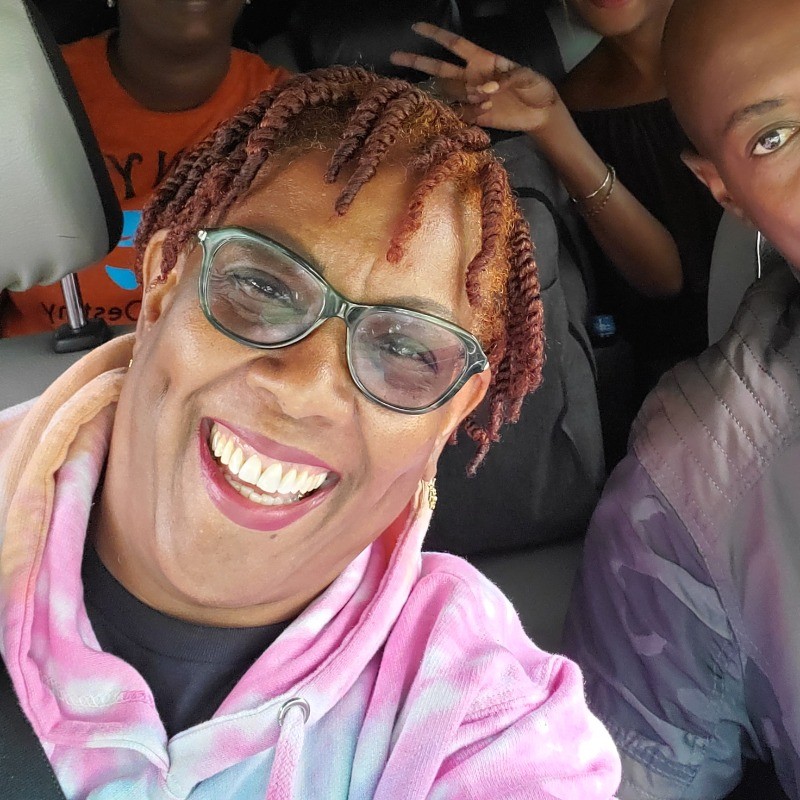Mary-Jo Rigby is a leadership coach, consultant, and passionate advocate for navigating transitions with confidence. With years of experience in the corporate space, including leading roles at top organisations like VISA, she now supports professionals and fintech start-ups to grow, scale, and thrive. At Humans of Fuzia, a global platform amplifying voices of changemakers with a community of over 5 million people, we proudly share Mary-Jo’s journey—a story of resilience, self-discovery, and creating success on your own terms.
Mary-Jo, you had an impressive corporate career before starting your own venture. What inspired you to become an entrepreneur?
Throughout my career, I’ve benefited from working with coaches at different stages—whether transitioning industries, returning to work after having children, or seeking promotions. While working at VISA, I became increasingly interested in coaching. Initially, I pursued training to support my role as a leader, but I discovered a real passion for coaching others. After my fourth child, rather than returning to a large corporate setup, I saw the opportunity to combine consultancy work with my own coaching business. It gave me greater control, allowed me to follow my passion, and offered flexibility to balance work and family life.
Tell us more about the audiences you work with through your business.
On the consultancy side, I work primarily with fintech companies—often Series A startups—helping CEOs with their go-to-market and growth strategies. With coaching, I support individuals making professional transitions—whether re-entering the workforce, pivoting industries, or stepping into leadership roles.
What benefits have your clients experienced through working with you?
For coaching clients, there’s greater clarity, increased confidence, and improved mental well-being—especially as they transition into more senior roles. I help them build their personal brand within large organisations and develop leadership tools, whether it’s managing teams or navigating tough conversations.
On the consultancy side, my fintech clients benefit from strategic expertise, connections in the financial services space, and tailored growth strategies—everything from identifying target markets to refining sales cycles.
Imposter syndrome is something you frequently discuss. Have you experienced it yourself, and how do you help others overcome it?
Absolutely. Imposter syndrome shows up all the time—even with experienced professionals. I’ve faced it myself, especially when I first started charging for coaching services or working with very senior clients. The key is recognising that these feelings are natural—they affect even the most accomplished people. I teach clients techniques to acknowledge those emotions without letting them dictate actions. Sometimes it’s about taking a small, courageous step—whether asking a question in a meeting or posting on social media—despite the self-doubt. Over time, confidence builds as you challenge those limiting beliefs.
Looking back, is there anything you would have done differently when starting your business?
I would have done more inner work to prepare for the transition from corporate to entrepreneurship. There are exercises I use now with clients that I wish I’d done myself—things like reflecting on what aspects of corporate life you’ll miss and finding ways to bring those elements into your new setup, like maintaining social networks or recreating a sense of team.
What does success mean to you, both personally and professionally?
I believe life and careers have different chapters. I plan for the future, but I’m also a trained yoga teacher, which reminds me to be present. Success for me, in this chapter, means enjoying my work while maintaining balance—making time for family, exercise, and hobbies. It’s about building a fulfilling life, not just a successful business.
What challenges have you faced as an entrepreneur, especially in your industries?
In coaching, the challenge is consistently building your client base—it takes work and vulnerability to put yourself out there. You also need to keep developing your skills to stay effective and manage your own imposter syndrome. In consultancy, working with startups brings uncertainty—sometimes they don’t secure funding. You have to love the work and stay grounded in the present, trusting that new opportunities will come even if things shift unexpectedly.
Is there anything exciting coming up for you?
I’m expanding my coaching practice and looking to partner with more corporates directly. Within fintech, one of the companies I consult with is expanding to Asia, so I’ll be travelling to Singapore soon. We’re also launching with several European clients this year, which is exciting.
“Transitions can feel daunting, but with the right support, clarity, and belief in yourself, they become the stepping stones to growth and fulfilment.” — Mary-Jo Rigby
Connect with Mary-Jo Rigby:
https://www.linkedin.com/in/mary-jo-rigby-16138b14/
Want to be featured?
If you’d like to share your story with the Humans of Fuzia community, email us at fuziatalent@fuzia.com.









